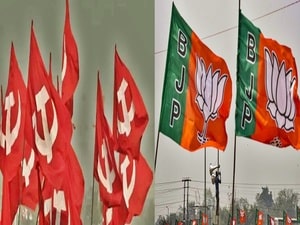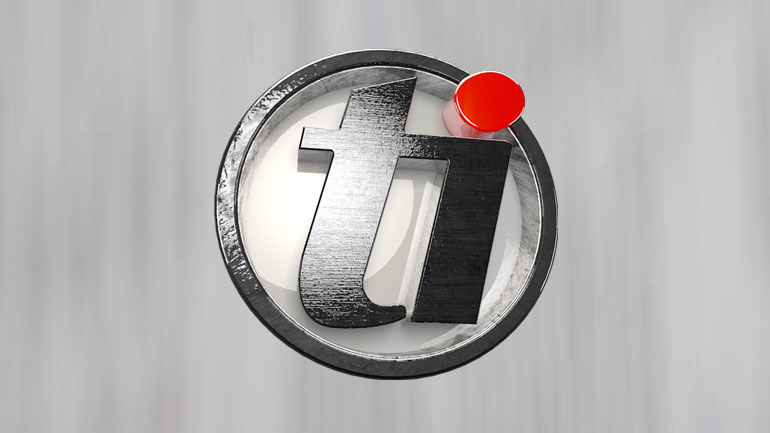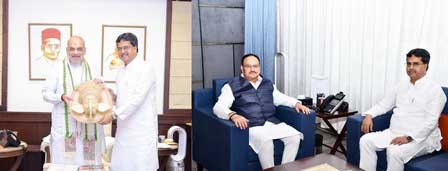Once a dominating force in the political landscape of Tripura, the organisational base of CPI-M-led Left parties, which governed the state for 35 years in two phases, has been constantly declining both in the tribal and non-tribal bases, enabling the BJP to latch on to it and derive electoral mileage.
The Congress, which last ruled Tripura from 1988 to 1993, also lost its base in Tripura, though the grand old party governed the erstwhile princely-ruled state for many years in different phases after it joined the Indian union in October 1949.
In the recent elections in Tripura's two Lok Sabha seats -- Tripura West and Tripura East, both won by the ruling BJP, the Left parties and the Congress, which jointly fought the polls as INDIA bloc -- got 23.93 per cent votes while the BJP secured 70.72 per cent votes.
Of the total of 60 Assembly constituencies, 30 segments fall in each Parliamentary constituency and except in one Assembly segment (Kailashahar) in all other 59 Assembly seats, the ruling BJP secured much more votes than the Left-Congress combine.
Of the 60 Assembly segments, 20 reserved seats are for the tribals and 10 for the Scheduled Castes. These 30 reserved seats were the strongholds of the Left parties since 1978, when they first came to power in Tripura.
Since 2018, when the BJP led by former Chief Minister Biplab Kumar Deb (2018-2022) came to power for the first time defeating the Left parties, their bases in tribal and Scheduled Caste dominated regions began weakening.
After 2018, the Left parties in the successive elections either won two or three reserved Assembly seats or drew a blank.
On the other hand, the BJP gained the support of the tribal communities on its own, also through its allies -- Indigenous People's Front of Tripura (IPFT) and Tipra Motha Party (TMP) -- both tribal-based parties.
Scripting an electoral history, Deb, who secured a record 8,81,341 votes, won the Tripura West Lok Sabha seat, defeating state Congress President and party nominee Ashish Kumar Saha by a margin of 6,11,578 votes.
Political pundits said that Deb, currently a Rajya Sabha member, despite quitting the Chief Ministerial post two years ago following the direction of the central leaders, still enjoys overwhelming support from the people of Tripura.
BJP nominee Kriti Devi Debbarman, who bagged 7,77,447 votes, won the Tripura East parliamentary seat defeating CPI-M nominee Rajendra Reang by a margin of 4,86,819 votes.
Kriti Devi Debbarman is the elder sister of TMP supremo Pradyot Bikram Manikya Debbarma.
The 53-year-old Deb became president of the BJP's Tripura unit in January 2016, and two years later, he led the party to oust the CPI-M-led Left Front after 25 consecutive years (1993-2018) in power and became the Chief Minister of the state's first BJP-led government, the fourth in the northeast after Assam, Manipur and Arunachal Pradesh.
He claimed that there was no strong opposition party in Tripura, and hence there was no major challenge in the Lok Sabha election from the opposition.
"My only challenge was to turn the opposition Communists and Congress leaders from negativity to positivity. What have they done after several decades in politics ? They only befooled the people and always engaged them in various so-called agitations," Deb told IANS.
"People of Tripura trusted me when I worked as CM, and that role also gave me the opportunity to serve the state and its people."
He further said: "I had started many things (projects and schemes), but I couldn't do everything. Naturally, when I was nominated as candidate for Lok Sabha polls, public aspirations, trust in BJP and 'Modi guarantee', all came together to prompt people to vote, rising above party, identity and religion."
Deb said that a huge medical tourism potential is lying here and Rs 400-500 crore economy can be achieved.
The BJP leader further said he would work in close coordination with the Central government led by Prime Minister Narendra Modi and the state government led by Chief Minister Manik Saha.
After being elected to Rajya Sabha in 2022, the central BJP leaders appointed him as the party's observer for Haryana as well.




Drugs valued at Rs 71 crore seized in Assam; 2 held
Heroin and highly addictive methamphetamine tablets, valued at Rs 71 crore, were seized during two separate operations in Assam's Kamrup district on Friday, officials said.
One held with cannabis worth Rs 15 Lakh in Sonamura
In a major breakthrough in Tripura Police’s ongoing crackdown on narcotics, a joint team led by Sonamura Police Station seized 325 kilograms of dried cannabis (ganja) from a house in Ananda Nagar village under Sepahijala district’s Sonamura Sub-division
BJP MP launches attack on Sonia Gandhi, Rahul Gandhi over National Herald case
The BJP Yuva Morcha staged a protest against Congress leaders Sonia Gandhi and Rahul Gandhi, accused in the National Herald case, in Agartala on Friday.
Two Bangladeshi women held at Agartala Railway Station
In a coordinated operation carried out on Thursday late night, two Bangladeshi women were arrested from Agartala Railway Station for illegally entering Indian Territory with the alleged intention of travelling to Mumbai via Kolkata.
2 minors among 315 arrested so far in connection with Murshidabad violence: Bengal Police report
A total of 315 arrests have been made so far in connection with the communal violence in Murshidabad district of West Bengal over protests against the Waqf (Amendment) Act last week, including two minors, confirmed the West Bengal Police in its report,
No plan to levy GST on UPI transactions over Rs 2,000: Govt
The Finance Ministry on Friday made it clear that the government is not considering any proposal to levy Goods and Services Tax (GST) on UPI transactions over Rs 2,000.
Tripura CM discusses state govt's key plans with HM Shah, JP Nadda
Tripura Chief Minister Manik Saha on Friday in separate meetings in New Delhi discussed important development plans of the state government with Union Home Minister Amit Shah and Health and Family Welfare Minister J.P. Nadda.
HM Amit Shah's 2026 deadline in sight as Sukma panchayat declared Maoist-free
This signalled a breakthrough in the government’s counter-insurgency and rehabilitation strategy. The mass surrender not only reflects a weakening of Maoist influence but also reaffirms HM Shah’s ambitious deadline as increasingly within reach.